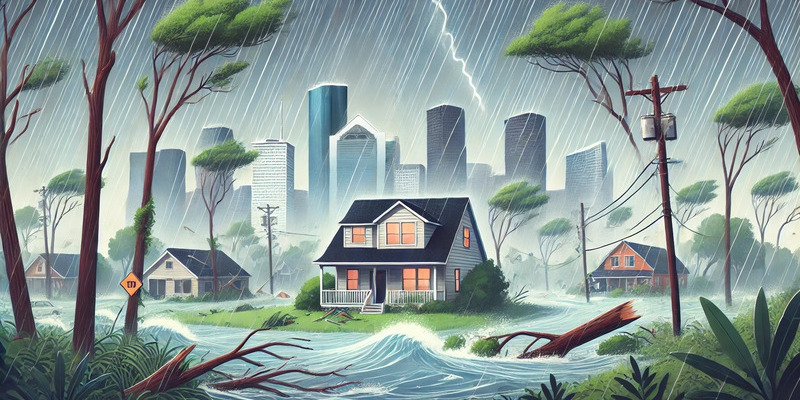A common question we receive at our management company is, ‘Who is responsible for property damage after a storm?’ With Houston recently experiencing approximately 100-mile-per-hour straight-line winds, many trees have fallen, causing significant damage. Here’s what property owners need to know about their responsibilities in the aftermath of such natural disasters.
General Rule of Responsibility
In Texas, during instances of natural disasters, property owners are generally responsible for the cleanup of what falls on their property. This means that if a tree falls due to a storm, the property owner on whose land the tree lands is responsible for removing it. This principle is based on the idea that there is no cause of action against an adjacent property owner for natural events.
No Trespass in Natural Disasters
A common question is whether a fallen tree constitutes trespass. In Texas, trespass is a tort that requires an intentional or voluntary intrusion onto someone’s property. According to Texas law, a trespass action cannot be claimed in instances where the intrusion is not intentional. Since a storm-induced tree fall is neither intentional nor voluntary, it does not qualify as trespass under Texas law.
The Exception: Negligence Due to Notice
There is an important exception to the general rule. If a property owner had prior knowledge that a tree on their property was sick or otherwise compromised and failed to take action to address the hazard, they could be considered negligent. In such cases, if the tree falls and causes damage, the owner could be held liable. This exception is rooted in the principles of negligence, where a property owner has a duty to prevent foreseeable harm.
Practical Steps for Property Owners
- Assess and Address Risks: Regularly inspect trees and other potential hazards on your property. If you notice signs of disease or instability, take proactive steps to mitigate the risk.
- Document Conditions: Keep records of the condition of trees and any actions taken to address potential hazards. This documentation can be crucial in defending against claims of negligence.
- Communicate with Neighbors: Maintain open communication with adjacent property owners, especially if there are shared concerns about potential hazards.
- Understand Your Insurance: Review your property insurance policy to understand what types of storm damage are covered and ensure you have adequate protection.
